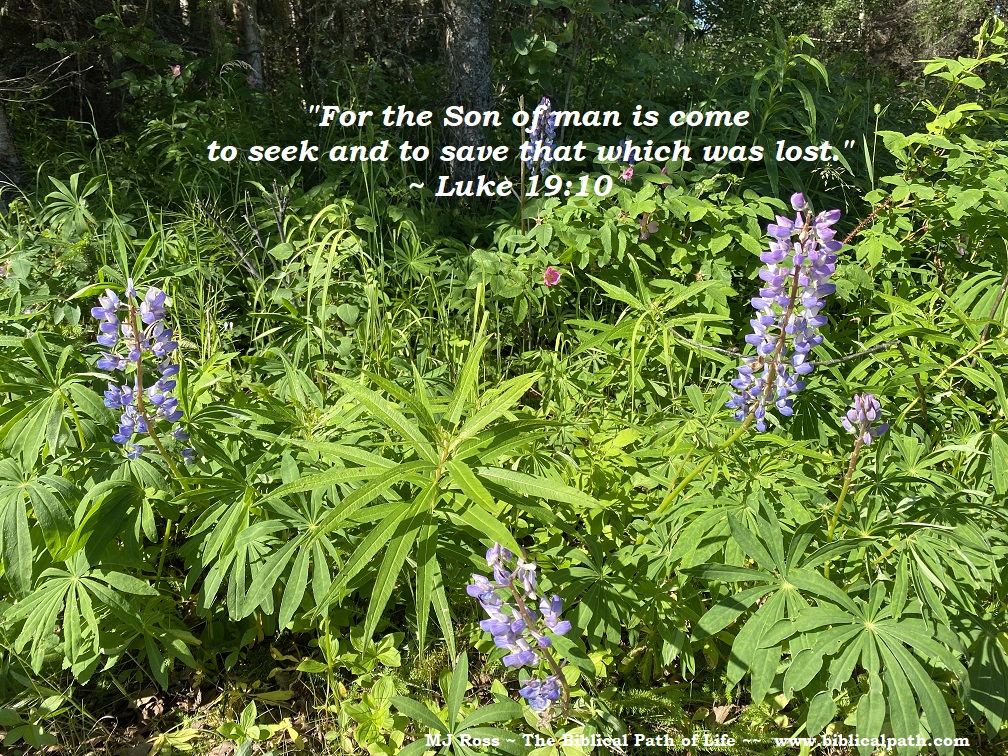
“For the Son of man is come to seek and to save that which was lost.”
Luke 19:10
Jesus spoke to people right where they were. We can read that Jesus explained the Gospel message to the Samaritan woman by water, which she had come to draw. “4. And he must needs go through Samaria. … 6. Now Jacob’s well was there. Jesus therefore, being wearied with his journey, sat thus on the well: and it was about the sixth hour” (John 4:4, 6). Notice that Jesus knew that He needed to go through Samaria. Even though Jesus came first to the Jews, understand that He did not come exclusively for the Jews. “For the Son of man is come to seek and to save that which was lost” (Luke 19:10).
When this woman who lived in Samaria went to the well to draw water, Jesus asked for a drink. “9. Then saith the woman of Samaria unto him, How is it that thou, being a Jew, askest drink of me, which am a woman of Samaria? for the Jews have no dealings with the Samaritans. 10. Jesus answered and said unto her, If thou knewest the gift of God, and who it is that saith to thee, Give me to drink; thou wouldest have asked of him, and he would have given thee living water.11. The woman saith unto him, Sir, thou hast nothing to draw with, and the well is deep: from whence then hast thou that living water?” (John 4:9-11). This woman recognized that Jesus was not a Samaritan, but she did not know who Jesus was. He began to explain to her. “13. Jesus answered and said unto her, Whosoever drinketh of this water shall thirst again: 14. But whosoever drinketh of the water that I shall give him shall never thirst; but the water that I shall give him shall be in him a well of water springing up into everlasting life” (John 4:13-14). She answered like most people who want temporary needs met. “The woman saith unto him, Sir, give me this water, that I thirst not, neither come hither to draw” (John 4:15). Instead of meeting her temporary, physical need, Jesus wanted to give her lasting salvation. However, this woman needed to recognize her lasting need. “16. Jesus saith unto her, Go, call thy husband, and come hither.17. The woman answered and said, I have no husband. Jesus said unto her, Thou hast well said, I have no husband: 18. For thou hast had five husbands; and he whom thou now hast is not thy husband: in that saidst thou truly” (John 4:16-18). It is at this point that she is beginning to understand that this man was different. “The woman saith unto him, Sir, I perceive that thou art a prophet” (John 4:19). She began to explain that she had a religion (see verse 20). However, Jesus explained to her that a religion would not do. “21. Jesus saith unto her, Woman, believe me, the hour cometh, when ye shall neither in this mountain, nor yet at Jerusalem, worship the Father. 22. Ye worship ye know not what: we know what we worship: for salvation is of the Jews” (John 4:21-22). This woman was focusing on a religious practice in a place. Jesus turned her attention to the Father, God. Worship was not in rituals or ceremonies (religious practices), but real worship must be in spirit and in truth. “23. But the hour cometh, and now is, when the true worshippers shall worship the Father in spirit and in truth: for the Father seeketh such to worship him. 24. God is a Spirit: and they that worship him must worship him in spirit and in truth” (John 4:23-24). God seeks people who will worship Him in spirit and in truth. However, when this woman did not know how to do this, she told Him what she did know. “25. The woman saith unto him, I know that Messias cometh, which is called Christ: when he is come, he will tell us all things. 26. Jesus saith unto her, I that speak unto thee am he” (John 4:25-26). She did not need a religion. She needed a relationship with Jesus.
Jesus told this woman what she needed; living water that only comes by faith in Jesus. Jesus then let her know that He knew everything about her, helping her belief. Although she was not a Jew, she was watching for the Messiah – and He presented Himself to her, personally. What did she do with that information? “28. The woman then left her waterpot, and went her way into the city, and saith to the men, 29. Come, see a man, which told me all things that ever I did: is not this the Christ?” (John 4:28-29). She not only believed but went back to town and told everyone. They came and met Jesus for themselves.
What happened because of the woman’s witness? “39. And many of the Samaritans of that city believed on him for the saying of the woman, which testified, He told me all that ever I did. 40. So when the Samaritans were come unto him, they besought him that he would tarry with them: and he abode there two days. 41. And many more believed because of his own word; 42. And said unto the woman, Now we believe, not because of thy saying: for we have heard him ourselves, and know that this is indeed the Christ, the Saviour of the world” (John 4:39-42). The Samaritan Woman believed, “And many of the Samaritans of that city believed on him for the saying of the woman” (John 4:39).
Have you forsaken religion for a relationship with Jesus, then telling others of Jesus Christ, the Saviour of the world?
Learn how to meet Jesus: How to be saved.
Leave a Reply